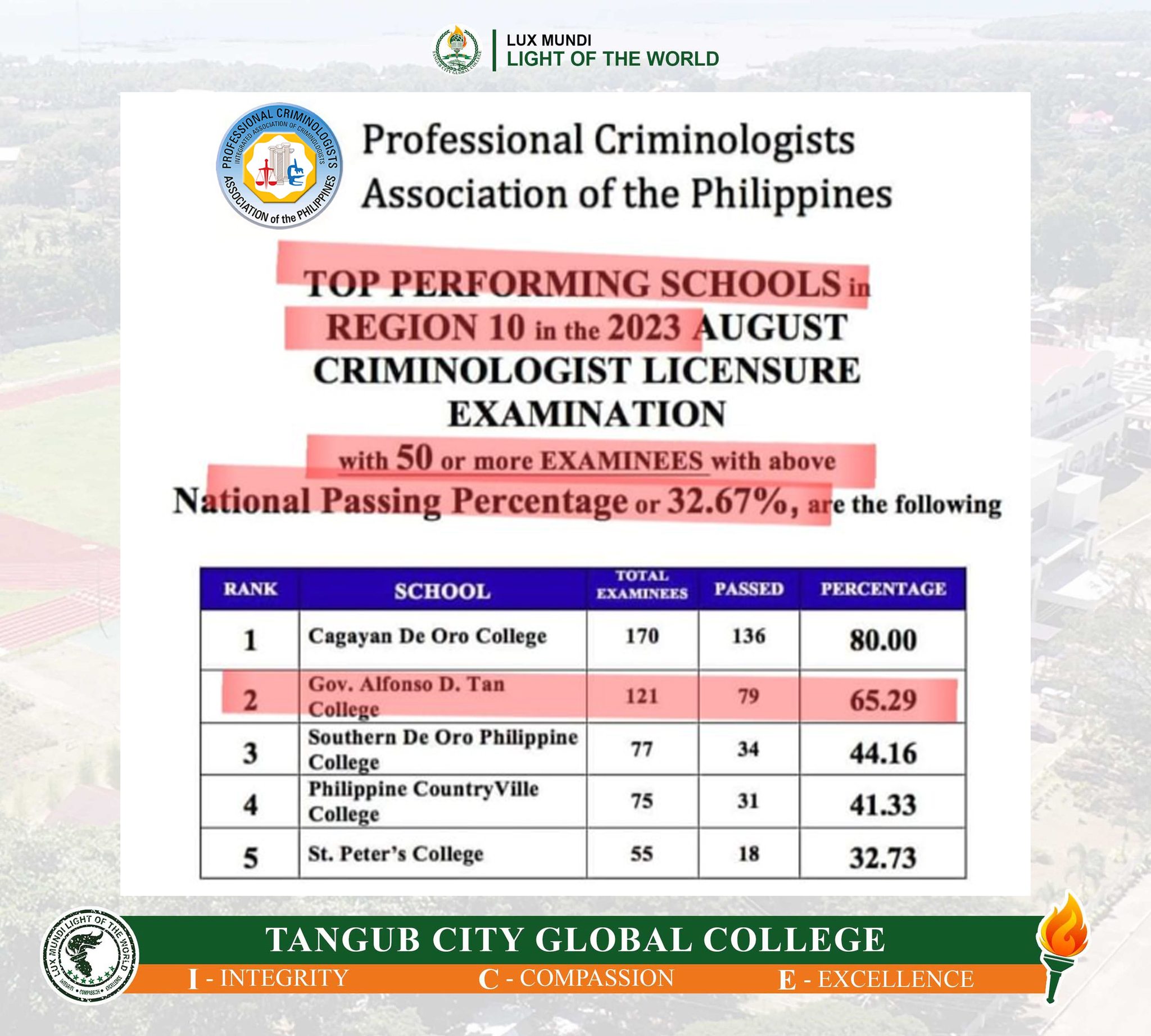Institute of Criminal Justice Education
Vision
The Institute of Criminal Justice Education envisions to be a purveyor of disciplined, loyal, highly competent, research literate and God – centered law enforcers ready to serve God and humanity.
Mission
The Institute of Criminal Justice Education commits to produce reputable law enforcement professionals who have the strength of character, effective interpersonal, communication and leadership skills, socio and eco – cultural concern and unwavering dedication to serve.
Goals
The prospective teachers should be able to:
1. To endow with advance instruction through continuous learning for quality education.
2. To develop skills through the use of forensic science in criminal investigation.
3. To provide Philippine based concrete experiences in criminal sociology and the justice system.
4. To enhance morally upright values for an improved community relations.
Degree Program of the Institute of Criminal Justice Education
| Institute of Criminal Justices Education |
BACHELOR OF SCIENCE IN CRIMINOLOGYThe field of criminology is the study of crime and the various agencies of justice as they operate and react to crime, criminals and victims. it is therefore the mission of the Criminology program to provide the community with professionally competent and morally upright graduates who can deliver efficient and effective services in crime prevention, crime detection and investigation law enforcement, public safety, custody and rehabilitation of offenders, criminological research, among others. Higher Education Institutions (HEIs) offering the Criminology program are envisioned as significant education institutions actively and continually involved in producing graduates who have the knowledge, skills, attitude and values in addressing the problem of criminality in the country and the character and competence to meet the challenges of globalization in the field of criminology. Program Educational Outcome
Retention Policies
Retention Policy- Intervention ProgramA student who shall get 75% passing rate of the Roadmap Examination shall;
Terminal RequirementsGraduates of the Bachelor of Science in Criminology are expected to be able to:
BACHELOR OF SCIENCE IN INDUSTRIAL SECURITY MANAGEMENTThis program involves the study and application of the principles of security. It prepares its graduates to assume supervisory roles. It involves the study of the principles and methods of risk management and the applicable interventions that confronts all types of human conditions and endeavors. It also includes the study and practice of the means of protecting resources from loss or damage. Specific Professions/careers/occupations for graduates
|

ICJE
-
1st Floor
Gov. Alfonso D. Tan College
J. Luna St. Maloro, Tangub City
7214 Misamis Occidental, Philippines - Contact #:
- +63-909-346-4451
- Email:
- icje@gadtc.edu.ph
- Fb Account:
- Institute of Criminal Justice Education





